With a documented history dating back over five millennia, India is one of the world’s greatest civilizational states. This amazing country is blessed with a rich cultural diversity, ancient heritage, and artistic legacy. As a subcontinent of 1.4 billion, India is home to a large number of regional cultures, traditions, and UNESCO World Heritage Sites that draw in millions of visitors worldwide.
If India is on your bucket list for 2024, here is a list of the top 7 art and culture destinations in the country.
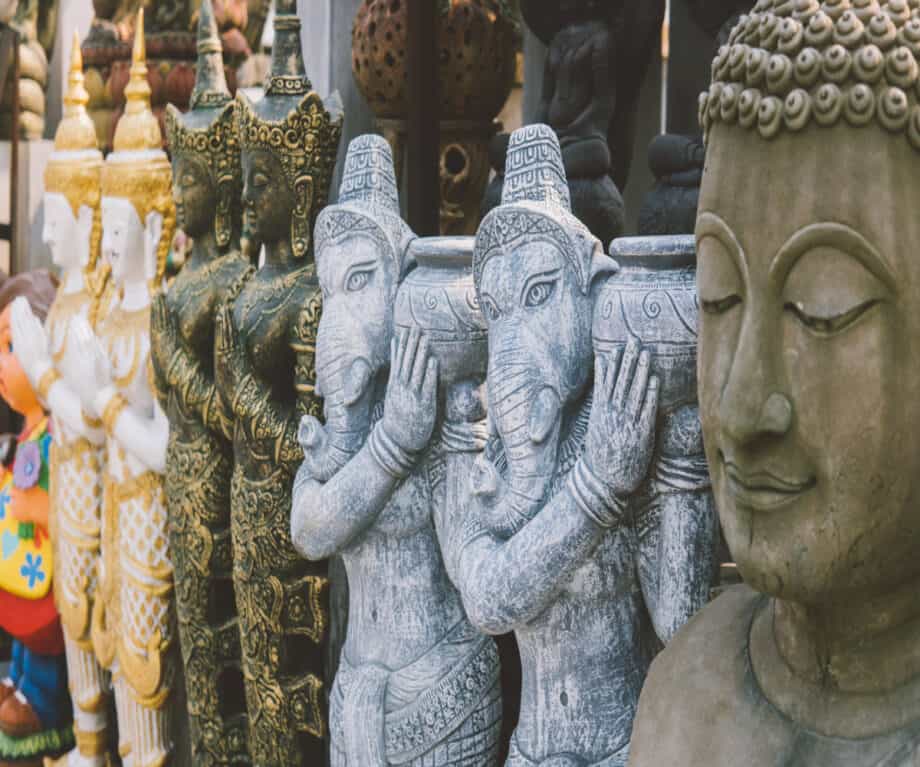
Jaipur, the “Pink City of India”
The capital of Rajasthan, Jaipur is India’s most regal city. Known for its majestic palaces and stunning Havelis (ancient mansions), the “Pink City” Jaipur is known as the “Paris of India.”
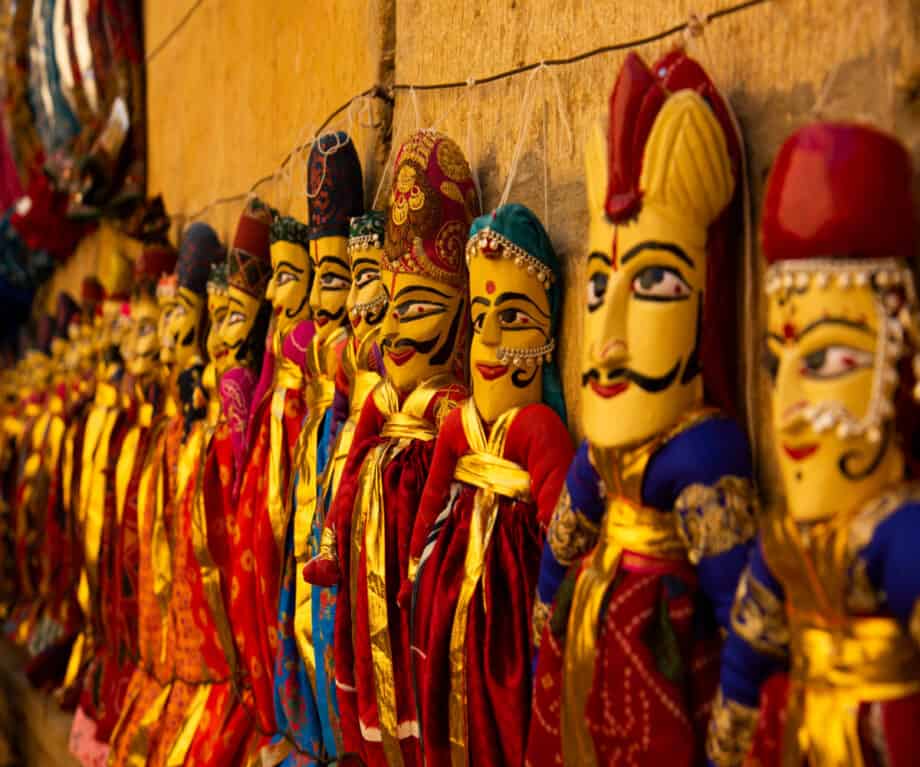
Along with Agra and Delhi, Jaipur is one-third of the three cities that make up the Golden Triangle Tourist Circuit—the most popular tourist circuit in north India. As the cultural center of the Kingdom of Jaipur, this royal city was painted in a hue of pink in 1876 AD for the welcome of Prince Edward — pink is the color of hospitality in Rajasthan. Many of its historical attractions follow a visually pleasing pink theme.
The most dazzling example of the artistic elegance of Jaipur is the residence of the Maharaja of Jaipur—the City Palace. Located within the walled city, the City Palace was commissioned by Maharaja Sawai Man sing II and was built in the 1720s. The towering six-storey pink-hued Hawa Mahal (Palace of the Winds) with its 950 jharokas (ornate windows) replicates the layout of the honeycomb, and is a stunning spectacle.
Other grand cultural attractions that you can visit in Jaipur include:
- The Amber Fort (former residence of the Maharaja).
- The Jantar Mantar Astronomical Observatory.
- The Jal “Water Palace” (located in the middle of the Man Sagar Lake).
Delhi, the Splendor of the Sultanates, Mughal India, and “New” Delhi
Strategically located on the crossroads of Hindustan, Central Asia, and Persia, Delhi was an important center of political intrigue, war, commerce, and cultural exchange. Many of its iconic landmarks like the Qutb Minar, Lodhi Gardens, Humayun’s Tomb, and the Red Fort were built during the Delhi Sultanate (1206 AD- 1526 AD) and Mughal era (1526-1761 AD).
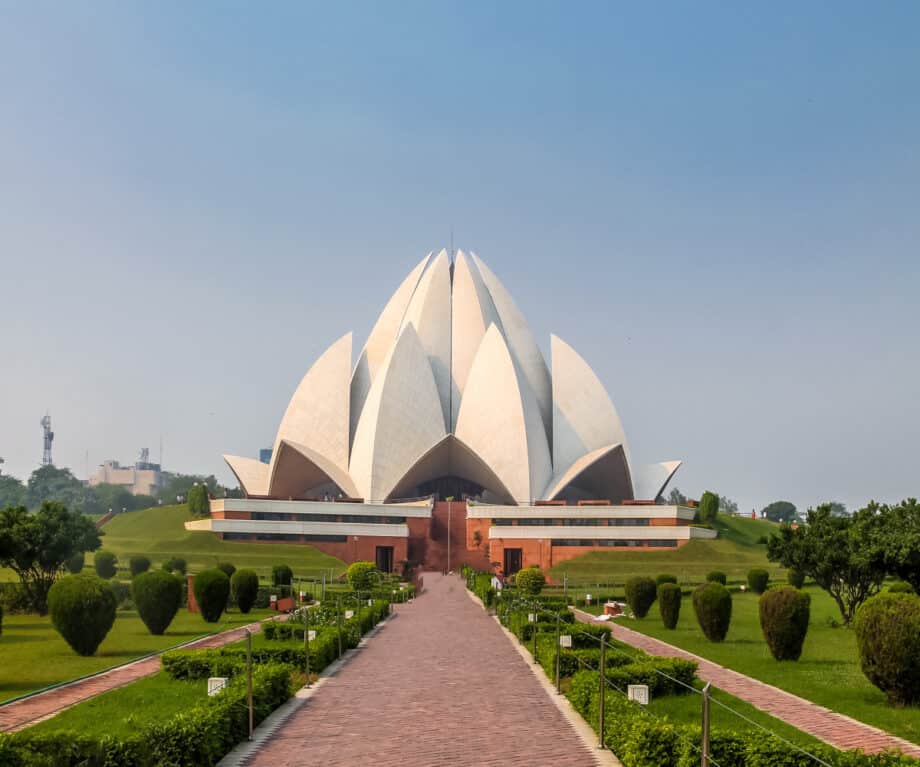
In the 20th century, the British Empire decided to move its capital from Calcutta to the north of the country and commissioned a new city under the supervision of the great British architect Sir Edwin Lutyens.
New Delhi is now the face of contemporary India with iconic symbols of the Indian Federation like the Rashtrapati Bhawan (President’s House), Rajpath (boulevard), Janpath, and Connaught Place.
As a city of tremendous history and cultural heritage, Delhi teems with great museums, artistic wonders, temples, shrines, mosques, Gurudawaras, and monuments.
Must-visit art and cultural attractions in Delhi
- Red Fort: Residence of the Mughal Emperors
- Humayun’s Tomb: Mausoleum of the Emperor Humayun
- National Museum: Houses over 200,000 items spanning over 5,000 years of history.
- Jami Masjid: The largest mosque in India.
- India Gate: First World War era monument honoring the memory of slain Indian soldiers.
- Lodhi Gardens: Dates back to the Lodhi Dynasty
- Lotus Temple: Important religious site of the Baha’i faith.
Khajuraho, Madhya Pradesh
The Khajuraho Group of Monuments (UNESCO World Heritage Site) dates back to the Chandela Dynasty 885-1000 CE. A group of ornate Hindu and Jain Temples located in the central Indian state of Madhya Pradesh, Khajuraho temples stand out for the vivid imagery of gods, graphic sexual imagery, and erotic stone carvings.
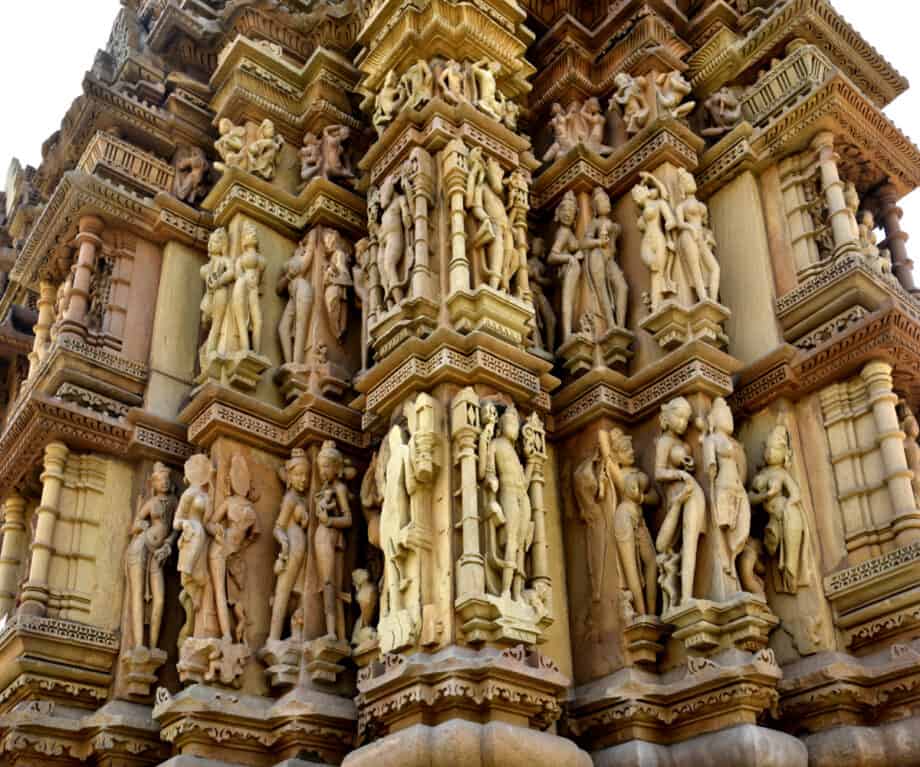
Built in the Nagara style of sculpting, these 25 temples spanning over 20 square kilometers, are arguably the greatest artistic expression of the Hindu faith. They were discovered in 1838 by British archeologists. Historians believe that the graphic depiction on the walls of these temples is an attempt to please the gods and entertain them. Others hold them to be visual representations of the ancient holy text Kama Sutra.
The ancient town of Khajuraho is nestled between Agra (home of the Taj Mahal) and Varanasi (the spiritual capital of India. It is a great stopover for those visiting the Taj Mahal or Varanasi.
Kolkata, the “Cultural Capital of India”
Previously known as Calcutta, Kolkata was the former capital of India under the British Empire. This iconic city in the eastern part of India still prides itself as the “Cultural Capital of India” due to its intellectual, artistic, and historical heritage.

Kolkata is also famous for its great food, love of literature, Bengali cinema, classical Indian music and dance, museums, and colonial landmarks.
Must-visit art and cultural attractions in Kolkata
- Victoria Memorial: Largest monument to a monarch anywhere in the world. A fine exhibit of Indo-Saracenic style, the Victoria Memorial is set amidst 64 acres of landscaped gardens, the monument (built in 1903) now houses a museum.
- Howrah Bridge: Built over the Hooghly River in 1943, this great steel bridge is the city’s most recognizable structure and a feat of modern engineering.
- Indian Museum: Founded in 1814 by the Asiatic Society of Bengal. The first museum was built in India.
- Birla Mandir: Hindu Temple built in the 1970s. A great blend of Dravidian, Rajasthani, and Utkala forms of architecture.
- Fort William: First center of British Colonial power in India.
Mumbai, the “City That Never Sleeps”
Mumbai, a bustling metropolitan of over 220 million, is the economic hub of India, and the embodiment of the modern “Indian Dream.” Formerly known as Bombay, the home of Bollywood is famous for its movie stars, celebrities, tech entrepreneurs, art-deco colonial architecture, and cultural attractions.
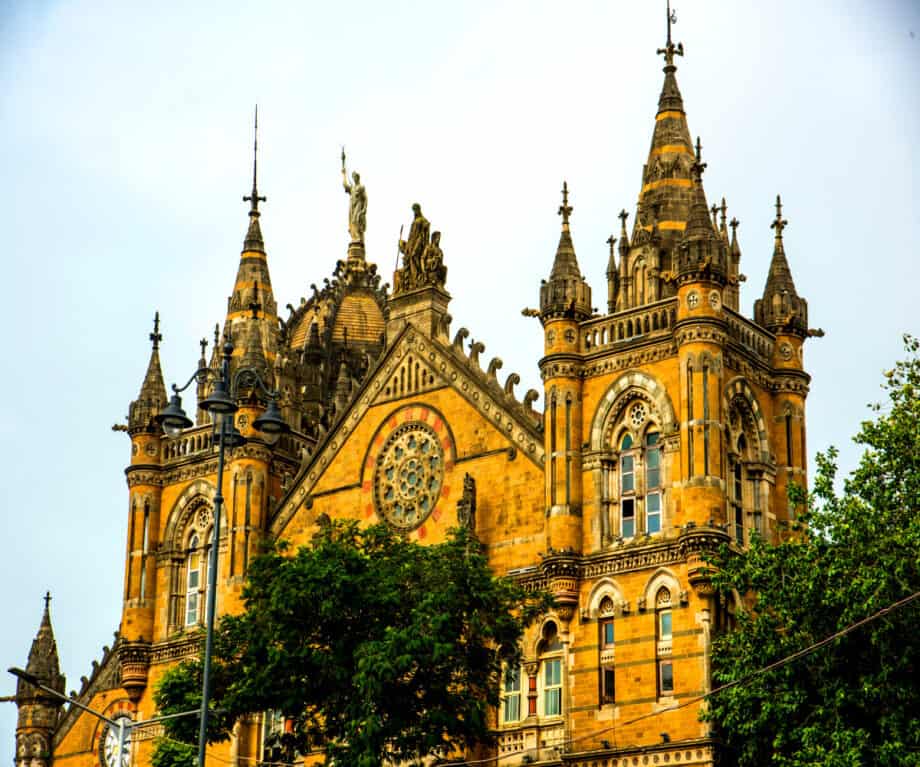
Must-visit art and cultural attractions in Mumbai
- Gateway of India: Located at Apollo Bunder, the Gateway of India is an arch-monument built in 1924 to commemorate the landing of King George.
- Chhatrapati Shivaji Maharaj Terminus: Previously known as the Victoria Terminus, this UNESCO World Heritage Site (built in 1878-1887 AD) is a stunning Italian Gothic-style railway terminus, and is one of the city’s most beautiful landmarks.
- Kala Ghoda: The hip art district of Mumbai, known for its art festivals, art galleries, boutiques, and chic restaurants.
- Shree Siddhivinayak Temple: Lord Ganesha Temple (built in 1801).
Ajanta and Ellora Caves, Maharashtra
The Ajanta and Ellora caves (UNESCO World Heritage Site) are a collection of rock-but Buddhist and Hindu caves located in the district of Aurangabad (Maharashtra). The caves date back to the 2nd century BC (Ajanta) and 6th century AD (Ellora) respectively. While the Ajanta site is mostly Buddhist, the Ellora Caves bear Hindu and Jain influences.
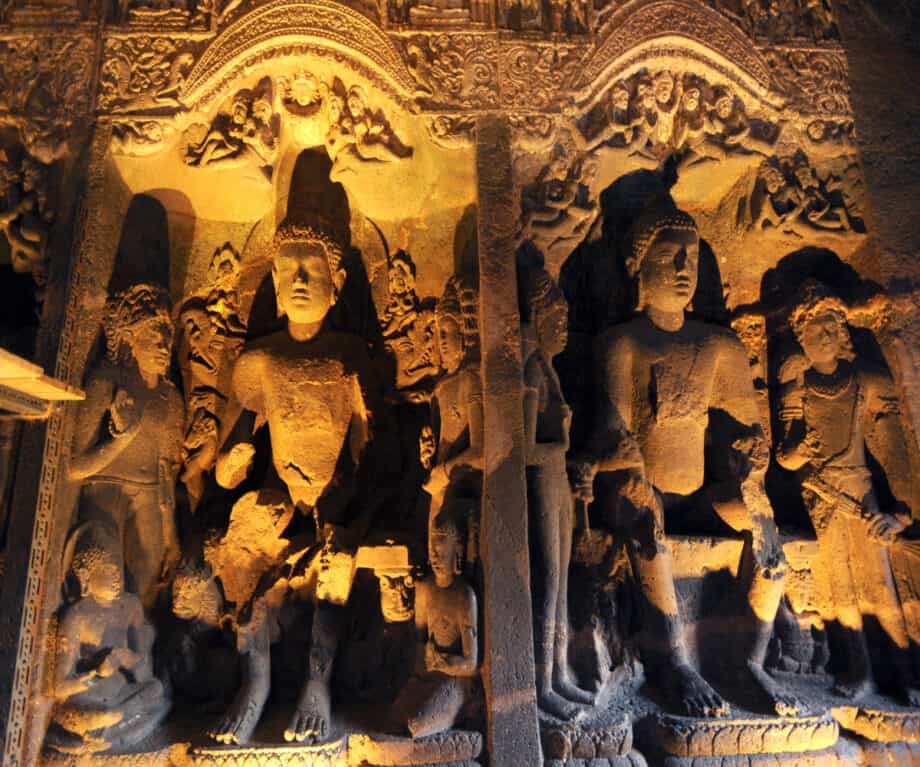
These cave-art sites are considered to be among the “finest surviving examples of ancient Indian art, particularly expressive paintings that present emotions through gesture, pose, and form.”
If you have an interest in ancient art, then you should not miss an opportunity to visit the Ajanta and Ellora Caves.
Udaipur, Rajasthani Royal charm in the Venice of India
The “City of Lakes” Udaipur is considered one of the most romantic destinations in India.
Known for its picturesque lakes, majestic palaces, ornate temples, and palatial Havelis, the historical capital of the Kingdom of Mewar is a must-visit destination for art and culture aficionados. Udaipur is also a great place to enjoy Rajasthani folk music, the cultural festivals of Mewar, and the exhilarating famous “Ghoomar” folk dance.
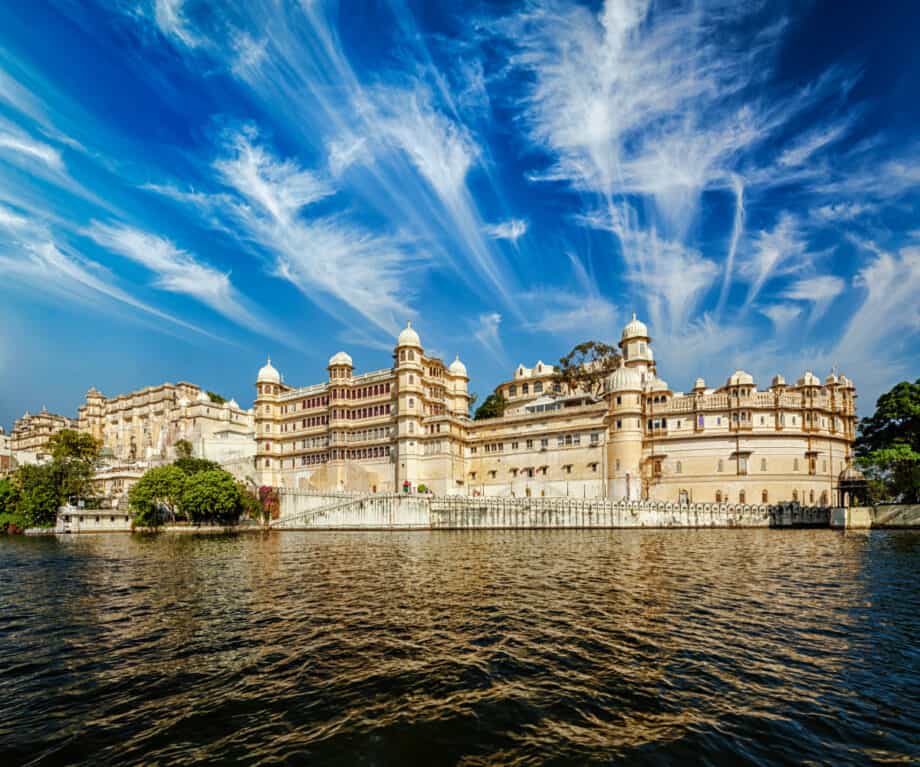
Must-visit art and cultural attractions in Udaipur
- City Palace: Residence of the Maharana of Udaipur. Built in the 1550s, it is considered a great exhibition of the Rajasthani tradition of architecture.
- Jagdish Temple. 79-foot-high temple, built in 1651, and a major cultural symbol of the city.
- Saheliyon Ki Bari: “Courtyard of the Maidens” is a garden and courtyard built by Maharana Sangram Singh in 1730s AD, for the Queen and her handmaidens.
- –Bagore ki Haveli: Mansion built in the 1750s by the Prime Minister of Mewar, located on the banks of Lake Pichola at Gangori Ghat.
Did you enjoy this article?
Receive similar content direct to your inbox.
Please enable JavaScript in your browser to submit the form

